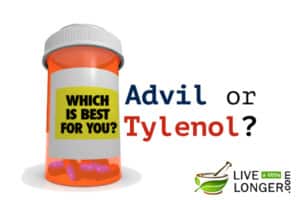If you are reading this post, then we are sure you want to know something about Tylenol. If yes, then we assure you to make you aware of different things about this medication. This article is going to cover topics like what is Tylenol, what is the active ingredient in Tylenol, how long does Tylenol take to work, is Tylenol an anti inflammatory, how long does it take for Tylenol to kick in, how often can I take Tylenol and so on. So let’s get started.
What Is Tylenol And What Does It Do?

Tylenol (acetaminophen) is a commonly used over-the-counter medication that helps in reducing pain and fever.It is used in people of all age groups with many different medical conditions.Such conditions are known to be the muscle ache, backache, headache, cold, toothache, arthritis and many more.Other names of this medication include Excedrin and Feverall.
Note: Never take Tylenol more than what your doctor prescribes. An acetaminophen overdose easily damages your liver and causes death. Contact a doctor immediately once you experience stomach pain (on the upper region), nausea, appetite loss, clay-colored stools, dark urine, itching and jaundice.
What Is The Active Ingredient In Tylenol?
The active ingredient used in Tylenol is none other than “Acetaminophen”.According to research from university of Texas “Nearly 500 Americans die yearly from acetaminophen overdoses, with 2,600 hospitalizations and some 56,000 emergency room visits”. The presents of this drug is implicated in nearly half of all liver damaging cases. But still the usage of Tylenol brand is always high aside from its competitors. The only thing the patients should have it in mind is its overdose. According to U.S. Food and Drug Administration (FDA), Acetaminophen overdose is a serious warning with a label of “severe liver damage”, it is safe to adults, kids and infants as long as it is taken as right dosage. Even if you are taking it on your own, talk to a pharmacist or a doctor prior using for allergy, cold, sleep and pain. Acetaminophen (APAP) is used in various combination medicines and thus, taking them together may make you get acetaminophen in excess, thereby, leading to a deadly overdose. Always check the medication’s label to know how much acetaminophen it contains.
How Does Tylenol Work?
As said above, Tylenol contains “acetaminophen”, which is a well-known fever reducer and pain reliever. It works by elevating the overall pain threshold so that one feels better. Acetaminophen belongs to a set of medications called antipyretics (or fever reducers) and analgesics (or pain relievers). It works rapidly to alleviate pain and fever. Unlike ASA (acetylsalicylic acid), which is also reported to be antipyretic and analgesic, acetaminophen doesn’t reduce inflammation.
How Long Does Tylenol Take To Work?
A very frequently asked question by different customers is none other than how long does it take for Tylenol to work or kick in? Well, this depends on the individual. Tylenol is not going to work the moment you take it. It has to first dissolve in your digestive tract and then enter into your bloodstream. As soon as it reaches the brain, APAP (acetaminophen) helps in blocking all the pain signals. Thereby, making you feel better. Say for example, if you take Tylenol on an empty stomach, it starts to work within 15 to 20 minutes. On the other hand, if you are taking Tylenol when your stomach is full, it takes about 30 to 60 minutes to work. Also, note that this medication is not a magic potion. Just to make it work instantly, don’t end up overdoing the dosage.I hope now your question how long for tylenol to work is answered.
How Long Does It Take For Children’s Tylenol To Work ?
As told before Tylenol takes different time to kick in the body. It’s not same for everyone. When a child has fever or some other ache, it is good to give a first dosage. Tylenol takes nearly 20 minutes to enter into the bloodstream. If fever does not drop even 1% until 4 hours, do not give the next dosage. It’s time to see the doctor. In 24 hours, you can give up to 5 dosage in 6 hour gaps.
How Long Does Tylenol Last?

Well, this depends on an individual. Since it is rapidly absorbed in the gastrointestinal tracts, it takes about 10 – 30 minutes to start working and stays in the system for 4 – 8 hours.
On an average, Tylenol lasts somewhere between 3 and 6 hours.
How Long Does Tylenol Take To Wear Off?
On an average, Tylenol takes about 4 to 6 hours to wear off.
How Should You Take Tylenol?
Tylenol should be taken exactly:
- As prescribed by your doctor or
- As directed on the label
A person is not supposed to take Tylenol in smaller or larger proportions, longer than what is been recommended by his or her physician. Measure the Tylenol liquid medication with a medicine cup or a measuring spoon (not the regular tablespoon). On the other hand, if the Tylenol is for a kid, use the Tylenol pediatric form. Again, make sure to use an oral syringe or measuring dropper, which comes with it. Follow the instructions given on the label. If you are using Tylenol Meltaways (these are chewable tablets), make sure to chew properly before swallowing it. These tablets easily soften inside the mouth.
Note: Rarely, the active ingredient in Tylenol “acetaminophen” causes a skin reaction. If you notice skin rashes or redness, stop this medication immediately and consult your doctor.
What To Consider Before Using This Medicine?
If you are going to use Tylenol, you need to keep few things in mind:
- Do not take Tylenol if you are allergic to APAP or acetaminophen
- Consult a doctor before taking acetaminophen so that you can be 100% sure if it is safe for you
- Talk to your doctor before using acetaminophen, especially if you have a history of alcoholism or a liver disease
- Never take Tylenol if you have cirrhosis (or alcoholic liver disease)
- Do not take Tylenol unless your doctor prescribes it
- If you are pregnant, talk to your doctor before taking Tylenol because he or she will be able to determine if it is safe for you or not
- If you are breastfeeding a baby, discuss with your doctor, as acetaminophen can easily pass into the breast milk and harm the baby
- Never give Tylenol to kids younger than two years without doctor’s advice
When To Stop Using Tylenol?
Stop using Tylenol and consult a doctor immediately:
- If you have fever for more than 2 days after its use
- If you experience pain after 7 days of its use
- If you notice skin rashes, skin swelling, redness and ongoing headache
Note: Tylenol may cause strange results for sugar tests and urine tests. Hence, it is important to tell your doctor that you are using Tylenol.
Where To Store Tylenol?
Tylenol must be stored in a dry, cool place. Keep away from moisture and heat.
What Happens If You Miss A Tylenol Dose?
Since Tylenol is used as required, one might not be on a dosing timetable. But if an individual is taking the medicine regularly and happens to miss a dose, the medication should be taken once he or she remembers. However, the missed dose must be skipped if it is almost time for the next. Never take extra medication just to compensate the missed dose.
What Happens If You Overdose?
A Tylenol overdose can be serious. The primary signs of a Tylenol overdose are as follows:
- Appetite loss
- Vomiting
- Nausea
- Itching
- Diarrhea
- Stomach pain or cramps
- Tenderness in the abdomen
- Confusion
- Sweating
- Weakness
Later symptoms might include:
- Dark urine
- Clay-colored stools
- Pain in the upper stomach
- Jaundice
Rare symptoms include:
- Cloudy urine
- Bloody, tarry stools
- Fever with/without chills
- Back pain
What Are The Side Effects Of Tylenol?
Every medication comes with its own advantages and disadvantages. And, Tylenol is no exception.
Common side effects of Tylenol include:
- Difficulty while breathing
- Hives
- Swelling of feet, lower legs, hands, eyes, lips, throat, face or tongue
- Skin allergies
- Constipation
- Headaches
- Agitation
- Vomiting
- Insomnia
Serious side effects of Tylenol include:
- Red, blistering or peeling skin
- Hoarseness
- Rashes
- Difficulty in swallowing
- Dark urine
- Loss of appetite
- Clay-colored stools
- Pain in the upper abdomen
- Nausea
- Jaundice
- Unusual bleeding
- Bruising
What Should You Avoid While Using Tylenol?
Tylenol is contained in various combination medicines. Taking them together may make you get too much acetaminophen and thereby, leading to a deadly overdose. Hence, it is vital to consult a pharmacist or a doctor prior using Tylenol. Whether it is Tylenol or some other medication, make it a habit to check the label. Look for acetaminophen content.
- When you seem allergic to Tylenol or facing some unwanted side effects, consult immediately a physician.
- If you have severe liver disease, avoid taking Tylenol.
- Avoid taking Tylenol, if you ever affected by an alcohol liver disease. If you take more than 3 alcoholic beverage per day strictly avoid Tylenol. As it can increase the risk of liver damage.
- Do not give Tylenol if your child is younger than the 2 yrs. Consult a doctor before giving this medication.
Should You Take Tylenol With Or Without Food?
Tylenol can be taken without any regards to meals.
Is Tylenol Completely Safe?
Tylenol is effective and safe if taken as directed by the doctor. Tylenol’s safety has been established after proper scientific investigation and 50 years of use.
Note: Don’t exceed the advised dosage.
Is Tylenol An Anti Inflammatory?
Unlike aspirin and other non-steroidal anti-inflammatory drugs, Tylenol (acetaminophen) doesn’t have an anti-inflammatory effect. Rather, it helps in relieving pain by working at the central part of the brain to turn off the pain feeling.
How Often Can You Take Tylenol?
About 1000mg of Tylenol can be taken once in every 4 hours and a total of 4000mg within a 24-hour period.
Tylenol Dosage Information For Adults
About 50 million Americans use Tylenol (acetaminophen) every week just to treat their fever, pain, and aches that come with flu or cold. For safe acetaminophen use, the Tylenol manufacturers themselves have lowered the daily maximum dose. The dosing gap has been changed from two pills a day, which must be taken with an interval of 4 – 6 hours.
1. Directions For Tylenol Regular Strength
- Comes in 325 mg
- 2 tablets of Tylenol Regular Strength has to be taken once in every 4 to 6 hours
- Use the medication, as long as your symptoms last
- Never exceed 10 pills in a 24-hour period
2. Directions For Tylenol Extra Strength
- Comes in 500 mg
- 2 caplets of Tylenol Extra Strength has to be taken once in every 6 hours
- Use the medication, as long as your symptoms last
- Never exceed 6 caplets in a 24-hour period, unless your doctor directs to
3. Directions For Tylenol Arthritis Pain
- Comes in 650 mg
- 2 caplets of Tylenol Arthritis Pain has to be taken once in every 8 hours
- Use the medication, as long as your symptoms last
- Never exceed 6 caplets in a 24-hour period
Tylenol Dosage Information For Children
Unless prescribed by your doctor, we suggest you not to give Tylenol to your child on your own, especially if you are unaware of the dosage or your kid is below 12 years. Even if you are giving Tylenol to your kid, here are few things to note:
- 10 – 15 mg for every kilogram of his or her body weight
- For children, Tylenol can be given once in every 4-6 hour period to a maximum of 60 – 65 mg for every kilogram in a 24-hour period
- Never exceed more than five doses in a 24-hour period, unless directed by your doctor
- If your kid is under 6 months, consult a doctor
What Forms Do Tylenol Come In?

Who Shouldn’t Use Tylenol?
A person is not supposed to take Tylenol if:
- He or she is allergic to acetaminophen
- He or she is allergic to any other ingredients of Tylenol
- He or she has liver problems
Interactions Of Tylenol (Acetaminophen)
Learning how long does Tylenol take to work isn’t just enough, especially if you are going to use often. This is the reason why it is vital to know its interactions as well. Just make a note of these:
1. Alcohol and Acetaminophen
If you are someone, who consumes 3 or more glasses of alcohol a day, discuss with your doctor whether you can take acetaminophen or not. Patients with alcoholic liver problems are more vulnerable to Tylenol-induced liver injuries.
2. Drugs and Acetaminophen
Believe it or not, acetaminophen is used in 600+ over-the-counter medications. And, if you happen to take one of those medications with acetaminophen, it could lead to a fatal overdose. So, talk to your doctor about it.
3. Other Possible Drug Interactions
- Isoniazid (Nydrazid, Laniazid)
- Diflunisal (Dolobid)
- Carbamazepine (Tegretol)
- Warfarin (Coumadin)
- Phenytoin (Dilantin)
- Phenobarbital (Luminal)
Can You Take Tylenol (Acetaminophen) During Pregnancy?
According to FDA, acetaminophen is emitted in small amounts into breast milk. Therefore, it is not advised or safe while breastfeeding.
What Can Tylenol Cure?
When you need relief from pain, acetaminophen, which is found in OTC medicines like Tylenol, can be used as prescribed. Acetaminophen might be right for you, if you fit in any one of the given descriptions.Acetaminophen gives a temporary relief from pains and aches (minor) that occur due to:
1. Acetaminophen could be a great pain relief option for people, who have:
- Backaches
- Headaches
- Cold
- Muscular aches
- Menstrual cramps
- Slight pain from arthritis
- Fever
- Toothaches
2. Acetaminophen could be a great pain relief option for people, who have:
- Stomach disorders
- Kidney problems
- High blood pressure
Can You Take Advil And Tylenol Together?
According to our research and what health experts ad to say, it is completely safe to take Advil and Tylenol together. However, it has to be taken at the correct scheduled intervals. Say for example, if you have taken 2 Advil (assuming it to be 200 mg) and if you still experience pain, you can take 2 Tylenol (of 325 mg) after 2 to 3 hours. Though they are considered relatively safe OTC medicines, care should be still taken while taking Advil and Tylenol. Make sure to follow the recommended dosage given on the bottles. If dosage exceeds, Tylenol can damage your liver and Advil increase the chances of heart attack.
Image Credit: www.tylenol.com


